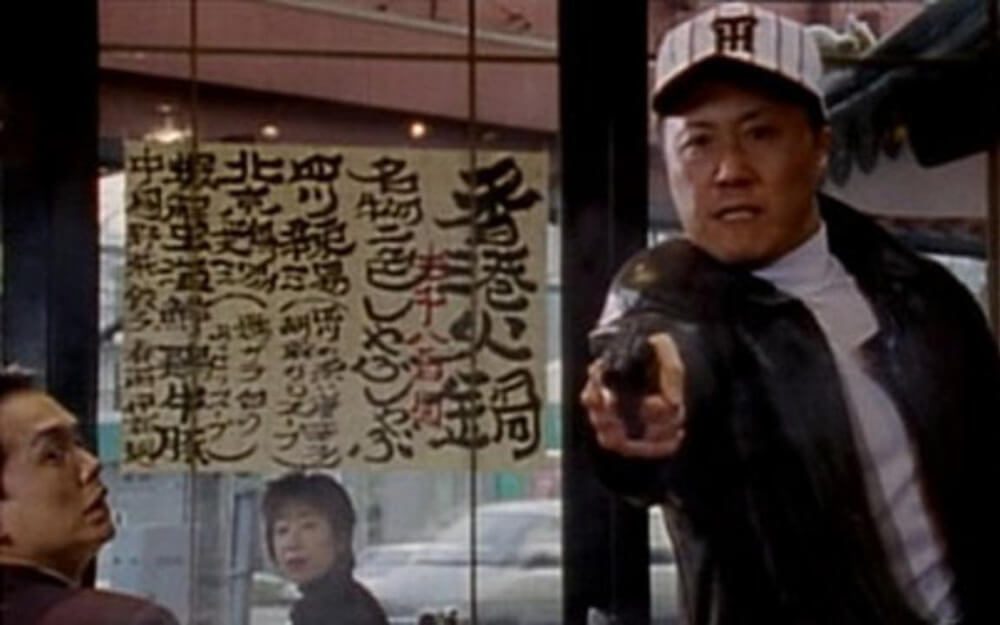Another Lonely Hitman by Rokuro Mochizuki (Review)

I suppose if you were feeling really snarky, you might want to rename Rokuro Mochizuki’s Another Lonely Hitman as Another Hitman Movie. Mochizuki hits all of your standard hitman movie plot points — a hitman is released from prison, only to find that his gang has changed with the times, and the code of honor he once operated under is no longer in effect — and blends it with plenty of noir-ish atmosphere and style.
On the plus side, the film has a nice feel throughout, due in large part to the steely blue-gray cinematography that lends everything a very chilled, cool tone, and the score, replete with bluesy, sensual saxophone passages. I suppose some might find the music rather dated, but it worked perfectly for me. However, the film is not without its flaws. As the film progresses, the plot gets rather muddled, including a subplot about one of the gang bosses trying to work under the radar to build a golf course, and something about the gang’s drug dealing.
And it doesn’t help that Ryo Ishibashi, who plays the film’s lead character Tachibana, gives one of the film’s least interesting performances. Ishibashi attempts to portray Tachibana with some gravitas and sorrow, but he usually comes across as stodgy and impassive. It’s somewhat difficult to watch him and not picture Takeshi Kitano in the same role, and doing a much more powerful and affecting job.
There’s some spark between Tachibana and a prostitute that he befriends, and his attempts to get her off of drugs — he was an addict when he was sent to prison — is one of the film’s more interesting aspects. Unfortunately, this is lost within the shuffling machinations of Tachibana’s gang as they seek to regain power in an era when the yakuza’s activities are effectively hobbled, forcing them to turn into businessmen, thugs, drug dealers, and porn purveyors. Eventually, as Tachibana tries to revert back to the old ways, and begins convincing others to join him, he becomes an increasing liability to the gang. Which, of course, sets up the inevitable ending.
In one of the film’s opening scenes, Tachibana, who easily becomes carsick after having not ridden in one for so long, decides to walk back to the gang’s headquarters and asks to be left behind. The car pulls away, with the camera in the backseat, and as we look backward, Tachibana becomes a mere dot swallowed up in Tokyo’s massive highway system.
It’s an evocative and powerful image, especially when accented by the music, and says more about Tachibana’s alienation and lostness than almost anything else in the film. It’s a shame the rest of the film couldn’t quite measure up to that single scene; otherwise, Another Lonely Hitman could’ve become quite the underground classic.